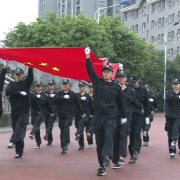高中英语语法总结 高二英语必修书的语法知识点总结
来源:择校网 时间:2025-03-23 07:31:39
一、高中必修一英语语法总结
组成句子的各个部分叫句子成分。英语句子成分有主语,谓语,表语,宾语,宾语补足语,定语,状语等。
顺序一般是主语,谓语,宾语,宾语补足语,而表语,定语,状语的位置要根据情况而定。
主语表示句子主要说明的人或事物,一般由名词,代词,数词,不定式等充当。
Helikeswatch'ingTV.他喜欢看电视。
谓语说明主语的动作,状态或特征。
可以有不同的时态,语态和语气。
Westud'yforthepeo'ple.我们为人民学习。
2),复合谓语:情态动词+不定式
Icanspeakalit'tleEng'lish.我可以说一点英语。
表语是谓语的一部分,它位于系动词如be之后,说明主语身份,特征,属性或状态。一般由名词,代词,形容词,副词,不定式,介词短语等充当。
Mysis'terisanurse.我姐姐是护士。
宾语表示动作行为的对象,跟在及物动词之后,能作宾语的有名词,代词,数词,动词不定式等。
WelikeEng'lish.我们喜欢英语。
有些及物动词可以带两个宾语,往往一个指人,一个指物,指人的叫间接宾语,指物的叫直接宾语。
Hegavemesom'eink.他给了我一点墨水。
有些及物动词的宾语后面还需要有一个补足语,意思才完整,宾语和它的补足语构成复合宾语。如:
Wemakehimourmon'itor.我们选他当班长。
在句中修饰名词或代词的成分叫定语。
用作定语的主要是形容词,代词,数词,名词,副词,动词不定式,介词短语等。形容词,代词,数词,名词等作定语时,通常放在被修饰的词前面。
Heisanewstu'dent.他是个新生。
但副词,动词不定式,介词短语等作定语时,则放在被修饰的词之后。
Thebikeintheroomismine.房间里的自行车是我的。
修饰动词,形容词,副词以及全句的句子成分,叫做状语。用作状语的通常是副词,介词短语,不定式和从句等。状语一般放在被修饰的词之后或放在句尾。副词作状语时可放在被修饰的词前或句首。
HelivesinLon'don.他住在伦敦。
7.补语用来说明宾语或主语所处的状态或正在进行的动作,因为英语中有些动词加宾语后意思仍然不完整,如:make(使...),ask(请)等等。如果我们说:我们使我们的祖国。这不是一句完整的话。应该说:我们使我们的祖国更美丽。这是的“美丽的(beautiful)”为形容词做补语,说明祖国的状态。英语句子为:We will make our country more beautiful.作补语的词或词组为:形容词,副词,名词,不定式,ing形式,数词等。
a good/great deal of大量(的);非常多(的)
a great/good many很多的,非常多的
act as充当;作;起......的作用
advise sb. against doing sth建议(劝)某人不要做某事
advise sb not to do sth建议(劝)某人不要做某事
advise sb to do sth建议某人做某事
agree with sb/what sb does同意某人的意见
all one's life终生,一辈子
all over到处,遍及…,浑身,结束
all the same一样,照样,完全一样
as a matter of fact事实上;其实
ask sb to do sth要求某人做某事
at someone’s hands出自某人之手,因为某人
at the beginning of在......的开始
at the school gate/ at the gate of the school在学校门口
at the top of one's voice高声地喊叫
at work再工作,在运转,在起作用
be able to do sth(有能力)做某事
be angry with sb愤怒,生某人的
be anxious about/for为......担心,焦急
be covered with/by为......所覆盖
be good at在......擅长,善于…
be in the habit of doing有做…的习惯
be made up of由...构成;由...组成
be popular with sb深受......欢迎
be rich in在......充足;富含.....
be satisfied/content with对……感到满意
be strict with(in)对某人(物)要求严格
be tired of sth/doing sth厌倦做某事
be tired with/from因......感到厌倦
be unfit for不合适,不称职,不胜任
be used to do......被用来作某事
be used to sth/doing sth习惯做某事
break down分解,机器等坏了;身体跨了
break the habit of doing改掉…的习惯
burn down把......烧成平地;烧光
burn...to the ground把......烧成平地
call for去取(某物);去接(某人);要求,需求
call on sb to do sth号召某人做某事
can’t help doing情不自禁的做…
compare with把......和......进行比较
consider sb as/to be认为......;把某人看做…
day and night=night and day日日夜夜
devote to把......献于;把......用于
do a good deed对某人做了一件好事
do sb a favour/ do a favour for sb帮某人一个忙
do sb good/ do good to sb对某人有好处
do some cleaning/cooking/washing/shopping打扫卫生/做饭/洗衣服/买东西
drop in at some place顺便拜访某地
feel free to do sth觉得自己可以随意做某事
feel like doing sth想要或喜欢做某事
fight out通过争斗解决争论,平息不和
fix one’s eyes upon sth/sb盯着…看
for fear of/for由于担心…,因为怕…
for the first time第一次赞同0|评论
二、高二英语必修书的语法知识点总结
我们都知道,任何语言的学习,起初都是语法的学习还有词汇的积累,再应用的过程。这是铁定的事实。在进入这个话题之前,我们必须首先明确英语学习的态度。积极的态度能取得事半功倍的效果。以下是我给大家整理的高二英语必修书的语法知识点总结,希望大家能够喜欢!
高二英语必修书的语法知识点总结1
一般过去时表示过去某一时候或某一段时间所发生了的事情或存在的状态。常与过去时间yesterday, this morning, just now, a moment ago, in May, last night/ year/ week, once upon a time, the other day, before…, when– clause, in the past连用。如:
What did you do yesterday?昨天你干了什么?
I met Lin Tao this morning.今天上午我会到了林涛。
I was there a moment ago.刚才我在那儿。
(1)表示过去某时所发生的动作或存在的状态。如:
Liu Ying was in America last year.刘英去年在美国。
Jim rang you just now.吉姆刚才给你打了电话。
(2)表示过去经常或反复发生的动作。常接时间副词often, usually, always, sometimes, every day/ week, etc.如:
We often went out for a walk after supper.我们过去常在晚饭后散步。
We usually played together.我们通常一起玩。
一般过去时的谓语动词要用动词的过去式。动词过去式的构成分规则变化和不规则变化两种形式,不规则变化通常需要逐个记忆,规则变化则遵循以下原则:
(1)一般在动词后加-ed。如:play—played, offer—offered, weigh—weighed, destroy— destroyed, sign—signed.
(2)在以字母e结尾的动词后,只加-d。如:like—liked, provide—provided, hate— hated, date—dated。
(3)在以“辅音字母 y”结尾的动词后,则改y为i,再加—ed。如:supply—supplied, fly—flied, study— studied.
(4)在以单短元音的重读闭音节结尾且,末尾只有一个辅音字母的动词后,双写最后一个辅音字母,再加-ed。如:plan—planned, refer—referred, regret—regretted, ban—banned.
有些动词的过去时,如:expect, hope, intend, plan, wanted等一般过去时,后接不定式的完成时;或它们的过去完成时接不定式的一般式,都可表示过去未曾实现的意图、打算或希望。如:
I hoped to have been invited to his wedding party.—I had hoped to be invited to his wedding ceremony.我本希望他来邀请我参加他的婚礼。
I intended to have joined their games.—I had intended to join their games.我本打算参加他们的比赛。
高二英语必修书的语法知识点总结2
系动词亦称联系动词(Link Verb),作为系动词,它本身有词义,但不能单独用作谓语,后边必须跟表语(亦称补语),构成系表结构说明主语的状况、性质、特征等情况。说明:有些系动词又是实义动词,该动词表达实义时,有词义,可单独作谓语。例如:
He fell ill yesterday.他昨天病了。(fell是系动词,后跟补足语,说明主语情况。)
He fell off the ladder.他从梯子上摔下来。fell是实义动词,单独作谓语。
用来表示主语状态,只有be一词。例如:
He is a teacher.他是一名教师。(is与补足语一起说明主语的身份。)
用来表示主语继续或保持一种状况或态度,主要有keep, rest, remain, stay, lie, stand。例如:
He always kept silent at meeting.他开会时总保持沉默。
This matter rests a mystery.此事仍是一个谜。
用来表示"看起来像"这一概念,主要有seem, appear, look。例如:
He looks tired.他看起来很累。
He seems(to be) very sad.他看起来很伤心。
感官系动词主要有feel, smell, sound, taste。例如:
This kind of cloth feels very soft.这种布手感很软。
This flower smells very sweet.这朵花闻起来很香。
这些系动词表示主语变成什么样,变化系动词主要有become, grow, turn, fall, get, go, come, run。例如:
He became mad after that.自那之后,他疯了。
She grew rich within a short time.她没多长时间就富了。(北京安通学校提供)
表示主语已终止动作,主要有prove, turn out,表达"证实","变成"之意。例如:
The rumor proved false.这谣言证实有假。
The search proved difficult.搜查证实很难。
His plan turned out a success.他的计划终于成功了。(turn out表终止性结果)
1)协助主要动词构成谓语动词的词叫助动词。被协助的动词称作主要动词。助动词自身没有词义,不可单独使用。例如:
He doesn′t like English.他不喜欢英语。
(doesn′t是助动词,无词义;like是主要动词,有词义)
2)助动词协助主要动词完成以下功用,可以用来:
He is singing.他在唱歌。(北京安通学校提供)
He has got married.他已结婚。
He was sent to England.他被派往英国。
Do you like college life?你喜欢大学生活吗?
Did you study English before you came here?你来这儿之前学过英语吗?
d.与否定副词not合用,构成否定句。例如:
I don′t like him.我不喜欢他。
Do come to the party tomorrow evening.明天晚上一定来参加晚会。
He did know that.他的确知道那件事。
3)最常用的助动词有:be, have, do, shall, will, should, would等。
1) be 现在分词,构成进行时态。例如:
They are having a meeting.他们正在开会。
English is becoming more and more important.英语现在越来越重要。(北京安通学校提供)
2)be 过去分词,构成被动语态。例如:
The window was broken by Tom..窗户是汤姆打碎的。
高二英语必修书的语法知识点总结3
过去分词兼有动词、副词和形容词的特征,可以带宾语或受状语修饰。过去分词和宾语或状语一起构成过去分词短语。它在句中可以作定语、表语、宾语补足语或状语。这节课讲解作定语、表语的用法。
作定语的过去分词如果是单词,一般放在被修饰词的前面;过去分词短语作定语,一般放在被修饰词的后面。例如:
There are many fallen leaves on the ground.
This is a book written by a worker.
过去分词作表语,多表示主语所处的状态。
过去分词作表语,相当于形容词,常见的有:delighted, disappointed, astonished, interested, satisfied, surprised, tired, worried, excited, married等。
过去分词作表语时,应注意与被动结构的区别。系表结构说明主语的状态或具有的性质、特点;被动结构强调谓语动作。
The small village is surrounded by trees.(状态)
The small village was soon surrounded by enemy soldiers.(动作)
I'm interested in chess.(状态)
①表时间,相当于一个时间状语从句,有时过去分词前可加连词 when或 while来强调时间概念。
Seen from the top of the hill, the city looked like a big garden.
Accepted by the Party, he decided to devote his life to the cause of the Party.
②表原因,相当于一个原因状语从句。
Exhausted, the children fell asleep at once.
Encouraged by the speech, the young people made up their minds to take up the struggle.
③表条件,相当于一个条件状语从句,有时过去分词前可用 if等词
Heated, water changes into steam.
Given another chance, he will do better.
④表让步,相当于一个though/although引导的让步状语从句。
Laughed at by many people, he continued his study.
⑤表伴随,说明动作发生的背景或情况。
Surrounded by a group of pupils, the old teacher walked into the classroom.
The trainer appeared, followed by five little dogs.
一、here, there, now, then, thus等副词置于句首,谓语动词常用 be, come, go, lie, run。
There goes the bell.铃声响了。
Then came the chairman. _来了。
二、否定词置于句首,句子应进行倒装。 neither放句首
Tod can't swim, neither can I.托德不会游泳,我也不会。
用于 never, hardly, seldom, scarcely, barely, little, often, at no time, not only, not once, many a time等词开头的句子。
Never shall I go there again.我再也不去那了。
Little did he know who the woman was.他基本上不知道那女人是谁。
Seldom was he late for class.他很少上学迟到。
用于 no sooner... than..., hardly... when...和 not until...的句型中
Hardly had I reached the station when the train left.我刚到车站,火车就离开了。
No sooner had she gone out than the phone rang.她刚离开,电话就响了。
Not until the teacher came did he finish his homework.直到老师来,他才完成作业。
三、用于 only放句首,修饰副词、介词短语或状语从句的句子。
Only in this way can you master English well.只有这种方法,你才能学好英语。
Only that time did he do his homework.直到哪个时间,他才做作业。
Only when he told me did I realize what trouble I was in.
省略多见于非正式文体,尤其在对话中,省略是一种普遍的现象。英语中的省略一般说来有三个目的:
1.避免重复,减少累赘。省略的主要目的是避免重复,去掉不必要的累赘和繁琐。
Mike said that he would come to school to see me the next day, but he didn't come to school to see me the next day.
Mike said that he would come to school to see me the next day, but he didn't.
(省掉最后九个词,句子简洁了许多)
2.连接紧密,结构紧凑省略也是使上下文紧密连接的一种修辞手段。
John was the winner in 1994 and Bob in 1998.(Bob后省略了 was the winner,句子结构显得比较紧凑)
3.强调重点,突出信息省略的另一作用是突出新的信息
Truth speaks too low, hypocrisy too loud.后一分句省略谓语 speaks,突出了 too loud)
为了避免重复,或者为了使某一内容引人注目,可以省略某些句子成分而保持句子原意不变。
Beg your pardon.请你原谅。(= I beg your pardon.))
Serves you right.你活该(= It serves you right.)
Anything the matter?要紧吗?(= Is anything the matter?)
The river was deep and the ice thin.河很深,冰很薄。
(= The river was deep and the ice was thin.)
Are you ready? Yes,I am.(am后面省略了表语 ready)
We have to analyze and solve problems.(analyze后省略了宾语 problems)
Let's do the dishes. I'll wash and you'll dry.(wash和 dry后面省略了宾语 dishes)
He spent part of the money, and the rest he saved.(the rest后面省略了定语 of the money)
(Even)The wisest man cannot know everything.
在一个句子中,省略可分为依赖上下文省略和不依赖上下文省略两种。前者省略的部分可在句子中找到,但后者可能找不到。
依赖上下文的省略在对话中最为常用。
Like more beer?(= Would you like more beer?)
—World you mind if I used your telephone?
—Will he pass this examination?
Probably.大概会的。(= He will probably pass the examination.)
All aboard!请上船(= All go aboard.省略谓语)
Haven't seen you for ages!(省略主语 I)
What about having a game of chess?
(=It sounds like a good idea.省略主语)
Everybody appears well prepared.
(= Everybady appears to be well prepared.省略不定式 to be)
并列句中如果前后分句有相同的部分,常常可以省略掉,以避免重复。通常被省略的可以是主语、谓语、宾语或其他万分,或句子万分的一部分。
John likes collecting stamps but(John) hates listening to music.(省略主语)
We can(win tomorrow's match), and certainly will,win tomorrow's match.
我们能够,而且一定会在明天的比赛中获胜。(前一分句省略谓语 宾语)
They can(pay the full fee) and(they)should pay the full fee.
在主从复合句中,活力的现象是很普遍的。
省略主句的句首部分。(I'm)Sorry I couldn't go.
省略整个主句或主句的一部分(回答问题时常用)。
(It is a)Pity he's failed.
If he says he'll come, he will(come).
3.在一些状语从句中,如果谓语动词是 be,主语又和主句的主语一致,或者主语是 it,常常可以把从句中的主语和 be省略掉。
以 when, while, once, until等连词引导的时间状语从句。
When(you are) in Rome do as Rome does.入国问禁,入乡随俗。
4.在比较从句中通常把和主句重复的部分省掉。
James enjoys the theeartre more than Susun.
Tom has as many books as Jack.
Brown speaks French as fluently as English.(as后省略了 he speaks)省略表语部分
Mrs White is not so young as she looks.(looks后省略了 young)
省略主语和谓语的大部分,保留状语
He is working harder than before.(than后省略了 he worked hard)
He drank a little more than was good for him.(than后省略了 it)省略宾语
You spent more money than I had expected.(expected后省略了that you should spend)
You are getting slimmer. simmer后省略了than you were before)
主句和从句中可同时省略一些成分。
The sooner(this is done), the better(it will be).
高二英语必修书的语法知识点总结相关文章:
★人教版高中英语必修一语法知识点总结
★高二英语必修5知识点和语法总结
三、高中英语语法知识点整理总结
高中英语知识点有哪些?应该怎么学习高中英语?有很多的同学是非常想知道,高中英语语法知识点有哪些,我整理了相关信息,希望会对大家有所帮助!
↓↓↓点击获取更多"高中英语知识点"↓↓↓
高中英语语法重要知识点:不定冠词
不定冠词a,an与one同源,表示微弱的一的概念,但并不强调数目,用来表示不确定的人或事物。
A用在辅音前,而不是辅音字母前;an用在元音前,而不是元音字母前。
I know a John Lennon,but not the famous one.
The two birds are of a color.
He grows up in a large family.
7.在某种情况下可用于抽象名词和物质名词前
高中英语语法知识点整理总结:定冠词的用法
2.表示地球、宇宙中独一无二的事物
主要指各种天体及世界上比较有影响的物体。The sun,the moon,the earth
3.表示地点、方向、时间、方式等 at the corner在拐角处
1)在表示季节的名词前常不用冠词。In spring在春天
2)具体某年的某个季节,需用冠词。In the summer of the year2008
3)用于序数词或形容词的最高级前 the first the second
4)用于形容词前使其名词化 the rich the poor
5)用于复数姓氏前,表示―夫妇‖或全家 The Smiths
6)用于乐器名词前 Play the piano
7)用于by the 计量单位名词 By the pound
复数名词泛指某类人或物时,其前通常用零冠词。Students should obey the school rules.学生应该遵守校规。复数名词若需特指,则要加定冠词。The students are too lazy.这些学生太懒。
不可数名词表示泛指时,其前通常用零冠词。如:Bread is made from flour.面包是用面粉做的。
Wood is a poor conductor of sound.木头是声音的不良导体。不可数名词若需特指,则要加定冠词。
He sawed the wood into three pieces.他把木头锯成三块。
在通常情况下,专有名词前要用零冠词。如:
Mr Smith is our English teaches us English.史密斯先生教我们英语。在特殊情况下,若专有名词需要特指,也可加定冠词。如:The Smith you‘re looking for no longer lives here.
有些可数名词抽象化后表示表示的活动,其前通常零冠词。Jim has gone to bed.吉姆已上床睡觉了。
She goes to church every Sunday.她每周星期天都去做礼拜。
这类主要涉及bed, church, class, college, school, university, work, hospital, prison, market, sea, town等。另外,这类名词前用不用冠词有时与英美英语的表达习惯有关。如:―住院‖在英国英语中通常说成 in hospital,而在美国英语中则通常说成in the hospital;类似的还有go to university(英)上大学/ go to the university(美)上大学;at table(英)在吃饭/ at the table(美)在吃饭。
当表示职务及头衔的名词用作表语、补足语及同位语时,其前通常用零冠词。如:Wilson became President of the U. S. A.威尔逊当了美国总统。He will be made captain of the football team.他将被选为足球队队长。
6.在表示学科、语言、三餐、月份、季节、节假日、星期等名词前,通常用零冠词。
We are all interested in physics.我们大家都对物理感兴趣。
go to sea去当水手 at home在家 at night在晚上 at least至少
at most至多 at first首先 at last最后 in bed在床上
on foot步行 face to face面对面
高中英语语法知识点整理总结:代词
高考中对代词的考查主要集中在人称代词(主要是其中的it)、关系代词、指示代词和不定代词上。
John likes playing Ping pong./ He always does it in the afternoon.(指代上下文提到的事物);/It's time we went home./ How far is it from here to your home?/ It is getting warmer and warmer./ It's very quiet at the moment.(可指时间、天气、环境等) 2.引导词
A.作形式主语,代替由不定式、动名词或从句表示的真正主语。
It's important for us to learn a second language./ It's no use talking to him./ It's known to all that the earth goes round the sun.
B.作形式宾语,代替由不定式、动名词或从句表示的真正宾语。
We feel it our duty to help others./ He made it clear that he would leave the city. C.强调结构:It is(was) 被强调部分 that(或who)…
注意:在强调结构中,如被强调部分为时间状语或地点状语,其后的连接词也绝不能为when或where,而应用that。在复习中,一定要注意句式的不同。It was in Shanghai that I bought the guitar.(that引起强调句) It was Shanghai where I bought the guitar.(where引起定从)
It was twelve o'clock when we arrived there.(when引起时间状语从句) It was at twelve o'clock that we arrived there.(that引起强调句)
3. it,one,that的区别:作为代词,这三个词的对比使用是高考的热点之一。—Why don't we take a little break?—Didn't we just have __________? A.it B.that C.one D.this
The Parkers bought a new house but _________will need a lot of work before they can move in. A.they B.it C.one D.which
one用以指代同类事物中的任一,that特指性强,指代可数与不可数词,而it指代上文提过的同一事物。
who,whose,whom,which,that,as

1)which可以引导非限定性定语从句,代表前面整个句子的内容,并且在从句中做主语 2)that的用法 1)不用that的情况
a)在引导非限定性定语从句时。b)介词后不能用。
We depend on the land from which we get our food. We depend on the land that/which we get our food from.
2)只能用that作为定语从句的关系代词的情况 a)在there be句型中,只用that,不用which。
b)在不定代词,如:anything, nothing, the one, all, much, few, any, little等作先行词时,只用that,不用which。
c)先行词有the only, the very修饰时,只用that。d)先行词为序数词、数词、形容词最高级时,只用that。. e)先行词既有人,又有物时。
All that is needed is a supply of oil.所需的只是供油问题。
Finally, the thief handed everything that he had stolen to the police.那贼最终把偷的全部东西交给了警察。
AS作关系代词,用来引导定语从句:限制性定语从句和限非制性定语从句一、AS引导限制性定语从句
AS引导限制性定语从句时,通常和such, the same, as(so)等连用,构成such...as/such as, the same...as/the same as, as(so)...as等结构,在从句中可作主语,宾语和表语。
1.such...as/such as意为―...的那种...,像那样的‖,such...as/such as引导限制性定语从句时,既可指人,也可指物。such用于名词之前时,具有形容词性质;such单独使用(即后面不接名词)时,具有代词性质。
Don‘t trust such men as praise you to your face.(as作主语)不要相信那种当面吹捧你的人。
You should read only such books as you can understand without much difficulty.(as作宾语)你应当只读那些你读起来不太难懂的书。
Associate with such as will improve your manners.(as作主语)要和能改善你的言行的那种人结交。
2.the same...as/the same as意为―与...同样的‖,和such一样,the same既有形容词作用,又有代词性质。
We have arrived at the same conclusion as they have.(as作宾语)我们已得出和他们同样的结论。
比较:the same...as和the same...that不同,前者是―同那一个相似‖,后者是―正是那一个‖。如:
This is the same watch as I lost.这同我丢的那块表一样。
This is the same watch that I lost?这正是我丢的那块表。
3.as(so)...as意为―和...一样‖,后接由many, much等修饰的名词或由形容词修饰的单数名词,注意其语序为as(so) adj. a n as,如:It‘s as pleasant a film as I have ever seen.这是一部和我以往看的同样好的电影。
As many soldiers as marched were killed.很多游行的战士都被杀了。
注意:such...as与such...that,so...as与 so...that的区别:that是连词,引出结果状语从句,在从句部分不作成分;as是关系代词,引出定语从句,在从句中可作主语,宾语和表语。比较:He is such a nice boy that everyone likes him. He is such a nice boy as everyone likes.
It is so difficult a problem that nobody can work it out. It is so difficult a problem as nobody can workout.
AS引导非限制性定语从句时,通常指的不是主句中的某一个名词(先行词),而是指整个主句表达的内容,对主句所作的陈述进行附加说明,意为―这...,如...或正如...‖。这种从句可位于主句之前,之中或之后。
As we all know, Taiwan belongs to China. Taiwan, as we all know, belongs to China. Taiwan belongs to China, as we all know.注意下面的习惯用法:
as is well discussed正如已讨论过的
as is often said正如通常所说 as is often the case通常就是这样 as has been pointed正如所指出的那样 as has been said before如上所述 as often happens如同经常所发生的那样 as might be expected正如所料 as is well known to all众所周知
在多数情况下,从句中的谓语助动词可以省略 as explained before如前面所解释的 as mentioned above如前面所提到的 as shown in the figure如图所示 as seen from the table从表中可以看出 as already discussed正如已讨论过的
1. some用于肯定句以及表示建议或期待得到肯定回答的问句。修饰单数名词时,意为某个。如:
I have some questions about the assignment.(希望得到肯定答复)。
2. any用于否定句和疑问句时,表示一些。用于肯定句时,只和单数名词或不可数名词连用,表示任何。如:
The medicine is on sale every where. You can get it at any chemist?s.二). each与 every的用法
1. each强调个体,表示两个或两个以上中的每一个,在句中可充当主语、宾语、定语和同位语。如:
There are trees and flowers at each side of the road.
2. every强调整体,表示三者或三者以上中的每一个,只能作定语,不能说 every of them,要说 every one of them.
Every student in our class works hard.三. no one与 none的用法
1. no one意为没有人,只能指人,不能指物,不可与介词 of连用,谓语动词用单数形式,回答 who引导的问句。如:Who is in the classroom? No one.
2. none既可指人,也可指物,强调数量,意为一点也不,一个也不;谓语动词既可用单数也可用复数;常与 of连用,通常指三者以上的人或物中没有一个,回答 how much和 how many引导的问句。如:
They were all tired, but none of them would stop to have a rest.四. other, another, others, any other, the other的用法
1. other表示泛指,意为另外的、其它的。常与复数名词或不可数名词连用。如果其前有 the, this, some, any, each, every, no, one以及形容词性物主代词时,其后就可接单数名词。如:I have no other place to go.
2. another常用于指三者或三者以上中的另外一个,泛指单数。可单独使用,也可后接名词。如果其后接复数名词,则表示又、再、还。如:This cap is too small for me. Show me another(one)。We need another three assistants in our shop.
3. others:它是 other的复数形式,表示泛指,意为别的人或物,但不指全部。特指时在其前加定冠词;前面可加任何限定词以及数量词。如:He has more concern for others than for himself.
4. any other表示一个之外的其他任何一个,而不是两个之中的另一个。如:China is larger than any other country in Asia.
5. the other:表示两者中的另外一个。可单独使用,也可接单数名词。如:No agreement was reached in the discussion as neither side would give way to the other.
五. all与 both的用法均表示都,但 all表示三者以上的人或物, both则表示两个人或物。二者都表示肯定意义,如果与 not连用时,则表示部分否定。
六. neither与 either的用法都可用于表示两个人或物。neither表否定意义,意为(两者中的每一个)都不;而 either表肯定意义,意为(两者中的每一个)都。都可单独使用,也可同介词 of连用。如:Both teams were in hard training; neither willing to lose the game. Do you want tea or coffee? Either. I really don't mind.
首先先你要端正心态,不要急躁,,你做你自己的事,这样才能静下心来学习。要成为英语高手就必须比别人走更多的路,做更多的事。你应该明白一个事实,英语是单词和语法的综合,所以单词和语法都要拿下。
其次,对于单词,有如下几种方法,第一个,是加强记忆的频度,也就是说,早上记了几个,隔几个小时又看一次,总之一天之内,记忆的间隔不要太长,否则你辛苦积累的记忆会随着时间的延长而淡化,第二个,是可以根据自己的理解编顺口溜,比如good morning是狗摸你…(见笑了)…,第三个,最重要的是,记单词的时候,不要忘了阅读,一边记单词,一边看文章,这样可以把孤立的单词串联起来,记忆的效果会加倍,第四个。
我建议你记单词要分门别类记忆,要形成一个意群,比如,重要性用magnitude magnificence,表示非常,大大地有exceedingly,tremendously,extremely……这样做在你写作时,是十分有好处的,写作时不要尽写一些低级词汇,你要写高级词汇,比如重要性写magnitude,许多写a multitude of或者handsome。
高中英语语法知识点整理总结相关文章:
文章分享结束,高中英语语法总结和高二英语必修书的语法知识点总结的答案你都知道了吗?欢迎再次光临本站哦!







